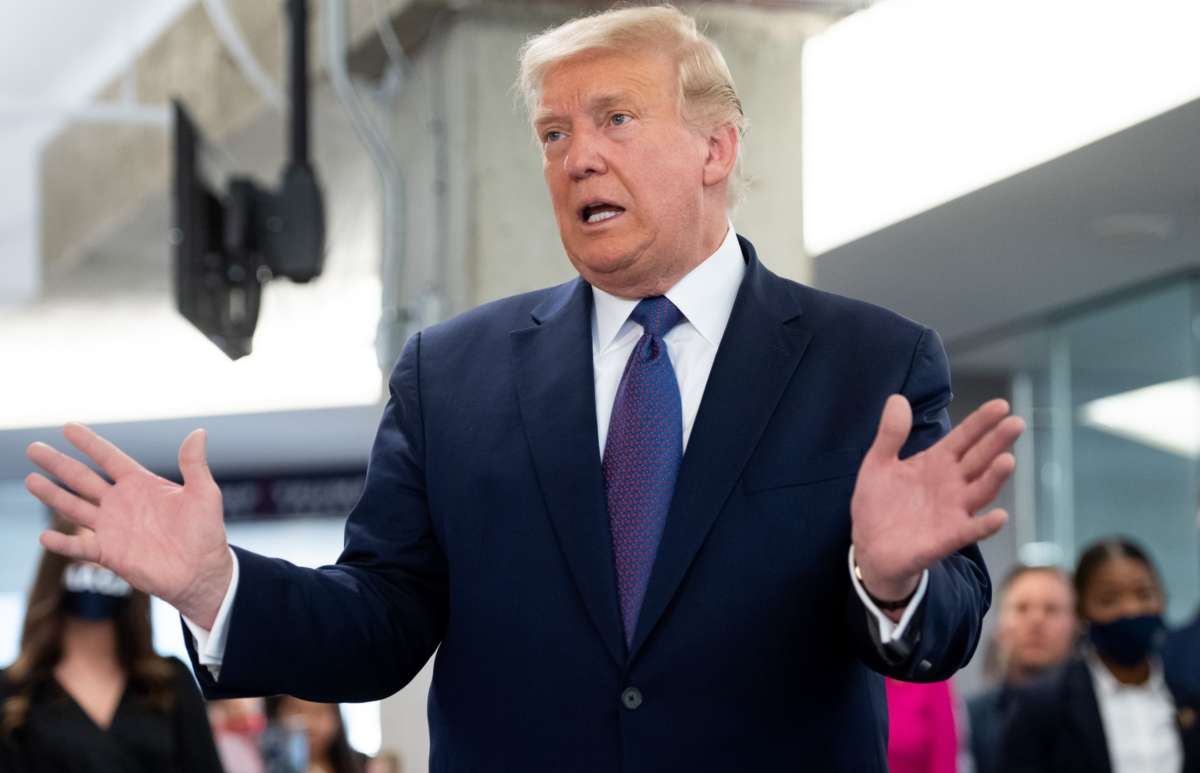Support justice-driven, accurate and transparent news — make a quick donation to Truthout today!
On Thursday, the House select committee tasked with investigating the January 6 insurrection issued its first subpoenas to four individuals from former President Donald Trump’s inner circle.
The four officials include: Dan Scavino,Trump’s social media handler; right-wing provocateur Steve Bannon, formerly Trump’s chief strategist; Kash Patel, who served as the chief of staff for the acting defense secretary at the time of the Capitol breach; and Mark Meadows, who was Trump’s last chief of staff.
Each of the four individuals who were subpoenaed on Thursday is believed to have insight into what Trump was thinking and doing leading up to and on the day of the January 6 Capitol breach. The subpoena notice to Meadows noted that he took part in spreading Trump’s false election fraud claims, while Scavino is being compelled to testify because it is believed he has relevant information surrounding Trump’s activities and communications on the day of the riot.
The commission wants all four officials to submit records relevant to their investigation by October 7. They also want the officials to testify over the course of October 14 and 15 during a closed-door hearing to provide further information.
There is a possibility that some of the Trump aides the commission has subpoenaed — possibly all four — will resist cooperating with the investigation, taking the matter to the courts in an attempt to block the subpoenas. On Thursday, Trump issued a statement saying that he would take matters into his own hands to stop them from testifying.
“We will fight the Subpoenas on Executive Privilege and other grounds, for the good of our Country,” Trump wrote in a lengthy missive, which included his continued false statements insisting the 2020 election was “rigged.”
Rep. Adam Schiff (D-California), who serves on the January 6 select committee, said that the challenges posed by Trump would be dealt with.
“We have additional tools that we didn’t before, including a Justice Department that may be willing to pursue criminal contempt when people deliberately flout the compulsory process,” Schiff said to reporters on Thursday.
Experts have said that Trump’s efforts to invoke executive privilege, thereby blocking his former officials from being compelled to cooperate with the investigation, will fail. Earlier this year, the Justice Department announced that it was authorizing Trump’s former officials to speak to the commission freely, waiving concerns over executive privilege being violated.
The commission may also be interested in investigating what Trump knew regarding a scheme devised by his lawyers in the days prior to the January 6 certification of the Electoral College. Newly released documents showcase how Trump’s legal team considered implementing a six-step plan to get former Vice President Mike Pence to ignore certain states’ electors, thereby guaranteeing a “win” for Trump in the certification process, even though he legitimately lost the election to now-President Joe Biden.
A terrifying moment. We appeal for your support.
In the last weeks, we have witnessed an authoritarian assault on communities in Minnesota and across the nation.
The need for truthful, grassroots reporting is urgent at this cataclysmic historical moment. Yet, Trump-aligned billionaires and other allies have taken over many legacy media outlets — the culmination of a decades-long campaign to place control of the narrative into the hands of the political right.
We refuse to let Trump’s blatant propaganda machine go unchecked. Untethered to corporate ownership or advertisers, Truthout remains fearless in our reporting and our determination to use journalism as a tool for justice.
But we need your help just to fund our basic expenses. Over 80 percent of Truthout’s funding comes from small individual donations from our community of readers, and over a third of our total budget is supported by recurring monthly donors.
Truthout has launched a fundraiser, and we have a goal to add 231 new monthly donors in the next 48 hours. Whether you can make a small monthly donation or a larger one-time gift, Truthout only works with your support.
